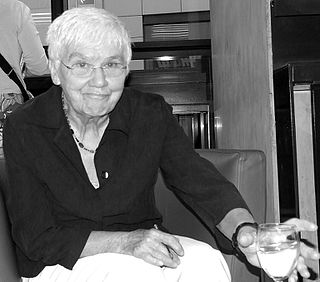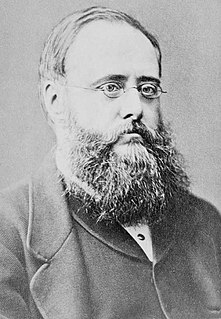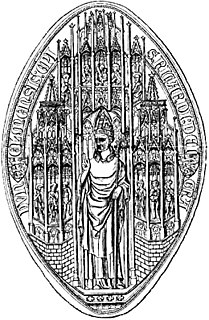A Quote by Ralph Waldo Emerson
How much we forgive to those who yield us the rare spectacle of heroic manners! We will pardon them the want of books, or arts, and even of gentler virtues. How tenaciously we remember them!
Related Quotes
Besides loving each other, we must bear with each other and pardon ? 'forgive them that trespass against us' ? in order that our heavenly Father may 'forgive us our trespasses' (Mt. 6:14). Thus, with all your soul honor and love in every man the image of God, not regarding his sins, for God alone is Holy and without sin; and see how He loves us, how much He has created and still creates for us, punishing us mercifully and forgiving us bounteously and graciously. Honor the man also, in spite of his sins, for he can always amend.
If you set your heart upon philosophy, you must straightway prepare yourself to be laughed at and mocked by many who will say Behold a philosopher arisen among us! or How came you by that brow of scorn? But do you cherish no scorn, but hold to those things which seem to you the best, as one set by God in that place. Remember too, that if you abide in those ways, those who first mocked you, the same shall afterwards reverence you; but if you yield to them, you will be laughed at twice as much as before.
We have different expectations for different groups of people. We tend to modulate the degree with which we're forgiving or punitive depending on how well we know folks, or how much we consider them peers, or how much social capital we've invested in them. That has to do with race, class, gender, and socioeconomic status. We have a tendency to bend over backwards to forgive folks we think of as part of "the us." The question of who we define as "the us" is a lot of what constitutes how we punish who we punish.
To be good Christians you have to contemplate the suffering humanity of Jesus. "How can we bear witness? Contemplate Jesus. How can we forgive? Contemplate Jesus suffering. How can we not hate our neighbor? Contemplate Jesus suffering. How can we avoid gossiping about our neighbor? Contemplate Jesus suffering. There is no other way". These virtues are the those of the Father, who forgives us always, and Our Lady, Our Mother, shares in these virtues too.
Let us consider how great a commodity of doctrine exists in books; how easily, how secretly, how safely they expose the nakedness of human ignorance without putting it to shame. These are the masters who instruct us without rods and ferules, without hard words and anger, without clothes or money. If you approach them, they are not asleep; if investigating you interrogate them, they conceal nothing; if you mistake them, they never grumble; if you are ignorant, they cannot laugh at you.
War both needs and generates certain virtues; not the highest, but what may be called the preliminary virtues, as valor, veracity, the spirit of obedience, the habit of discipline. Any of these, and of others like them, when possessed by a nation, and no matter how generated, will give them a military advantage, and make them more likely to stay in the race of nations.
When an injustice happens, we want to be vindicated. People feel that if they forgive the person who hurt them, then they will continue to take advantage of them or not take responsibility for what they did wrong. If we're honest, we'll admit that we usually want the person who hurt us to pay for what they did. We can't get past this until we get the revelation that only God can pay us back. He is our Vindicator - He will heal and restore us if we will trust Him and forgive our enemies as He has told us to do.
"If a man finds it very hard to forgive injuries, let him look at a Crucifix, and think that Christ shed all His Blood for him, and not only forgave His enemies, but even prayed His Heavenly Father to forgive them also. Let him remember that when he says the Pater Noster, every day, instead of asking pardon for his sins, he is calling down vengeance on himself."










































